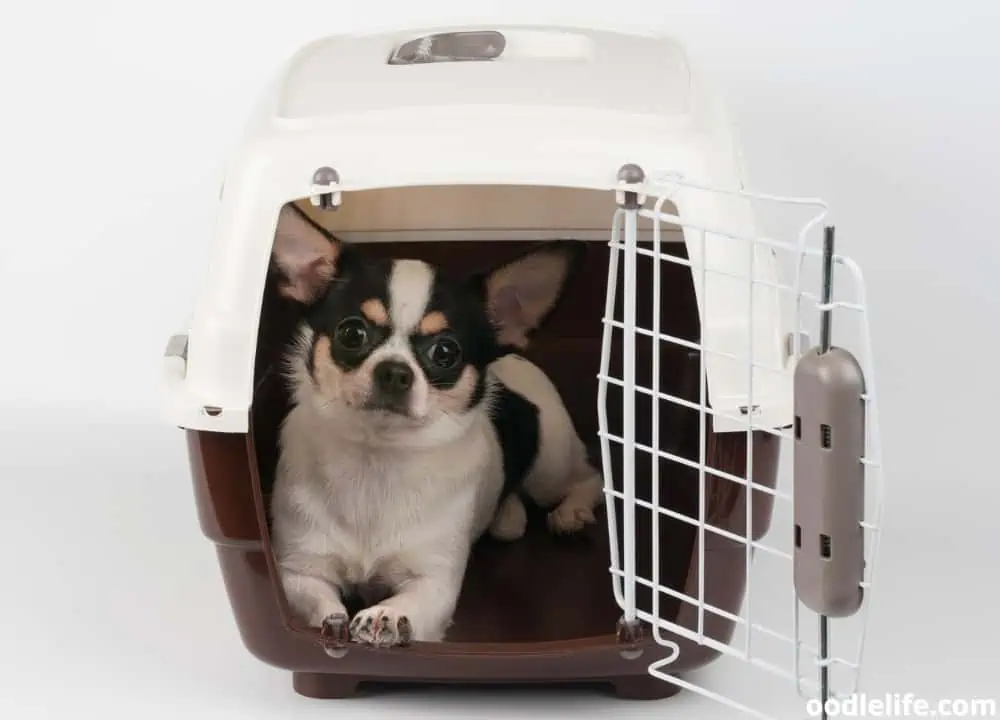11 Crate Training Benefits (2025)
A crate provides more than a snuggly sleeping place for your dog. It is a secure, personal space that many dogs come to love.
Veterinarians and professional dog trainers recommend crate training to lower your pet’s anxiety and mold good behavior habits. Crate training is not an inhumane practice but is best for a happy, healthy dog. Keep reading to learn all about the many crate training benefits for your dog.

11 Benefits of Crate Training
From decreasing anxiety to preventing destructive behavior, crate training has plenty of positives for owners and their beloved pets.
Provides Safety in an Emergency
If you live in an area prone to wildfires, floods, or landslides, you may worry about what would happen to your dog during an emergency. There’s no question a fire or evacuation scenario is incredibly frightening for everyone, including your dog. Having a crate on hand is one of the most reliable and secure contingencies you can have for an emergency.
When your dog is used to being in a crate, you have one less thing to worry about while you make your emergency getaway. Should a fire break out in your home, a dog in a crate is easy for firefighters to locate and rescue. After all, frightened dogs may run and hide somewhere firefighters can’t save them.
A crate keeps your dog and emergency responders safer. Even the friendliest pups can behave aggressively when spooked as they don’t know that the firefighter or EMS worker is a friend trying to save their lives.
Especially crating your dog at night helps in an evacuation because you won’t have to search for a frightened dog.
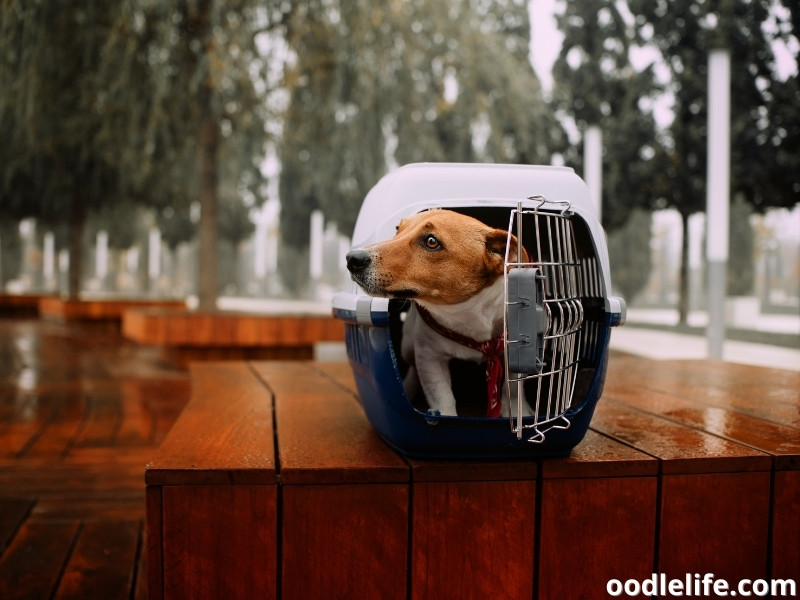
Ensures an Escape Artist Stays Safe
Some dogs hate to be left alone in the house, with a few even becoming Houdini-level escape artists. Unfortunately, most escape stories don’t have a heartwarming end like The Incredible Journey. Many dogs who escape their home are struck by cars and seriously injured or killed.
A crate provides a safe and escape-proof container for even the most precocious dogs.
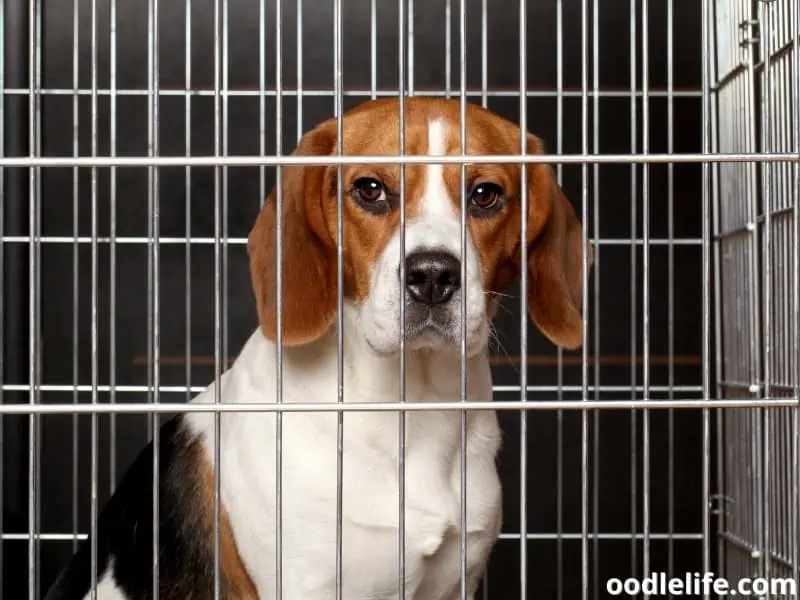
Decreases Separation Anxiety
Most dogs experience some form of separation anxiety even if they don’t develop the penchant to escape home. Since a crate provides a reassuring, secure place for your dog, it helps to reduce separation anxiety.
He will quickly become familiar with your routine and know when he is going in and getting let out of his crate. My dog doesn’t bark to be let out while I dress and make my coffee. He knows the next step in our day is his morning walk.
Crate train your dog for when you are home and away. Doing so will give your pet a strong foundation to stay calm when not in your presence. Moreover, when your pup is not struggling with separation anxiety, it reduces the likelihood that they will act out by getting up to mischief around the home.

Reduces Anxiety in New Situations
Another situation that can stress your dog is moving or going on vacation. While you look forward to an enjoyable week at the beach, your pet may be getting nervous about this new place.
Bringing along their crate gives your pooch a familiar place to go when she’s feeling overwhelmed by unfamiliar surroundings.
No matter where they go, a crate can help a dog transition peacefully into a strange environment. It will serve as a comforting place where they can withdraw, whether to relax, nap, or sleep at night.
Keeps a Puppy Out of Trouble
Puppies are notorious for their troublesome behavior. They have a habit of chewing anything that piques their interests, go into nooks and crannies where they don’t belong and do their potty business anywhere.
A crate provides a controlled environment for your puppy when you can’t watch him. It is beneficial for a puppy to have a space for taking a break from stimuli. Crate training lets your puppy have a place to calm down when he is overstimulated.
It also gives you a safe place to leave your puppy out of sight.
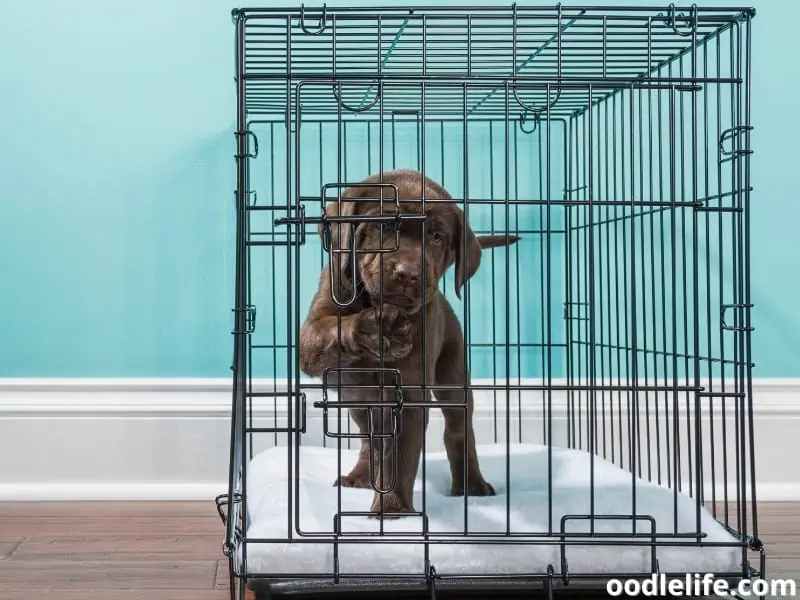
Prevents Destructive Behavior
Puppies are not the only destructive dogs. Older pets and rescues can develop unhealthy behaviors too. Crate training helps to keep the mayhem to a minimum while you work on training your pet not to chew, rip, or dig.
You can begin with a proper-sized crate with no bedding or toys liable to be destroyed by an unruly canine. As the destructive behavior decreases, you can add those comfort items back.
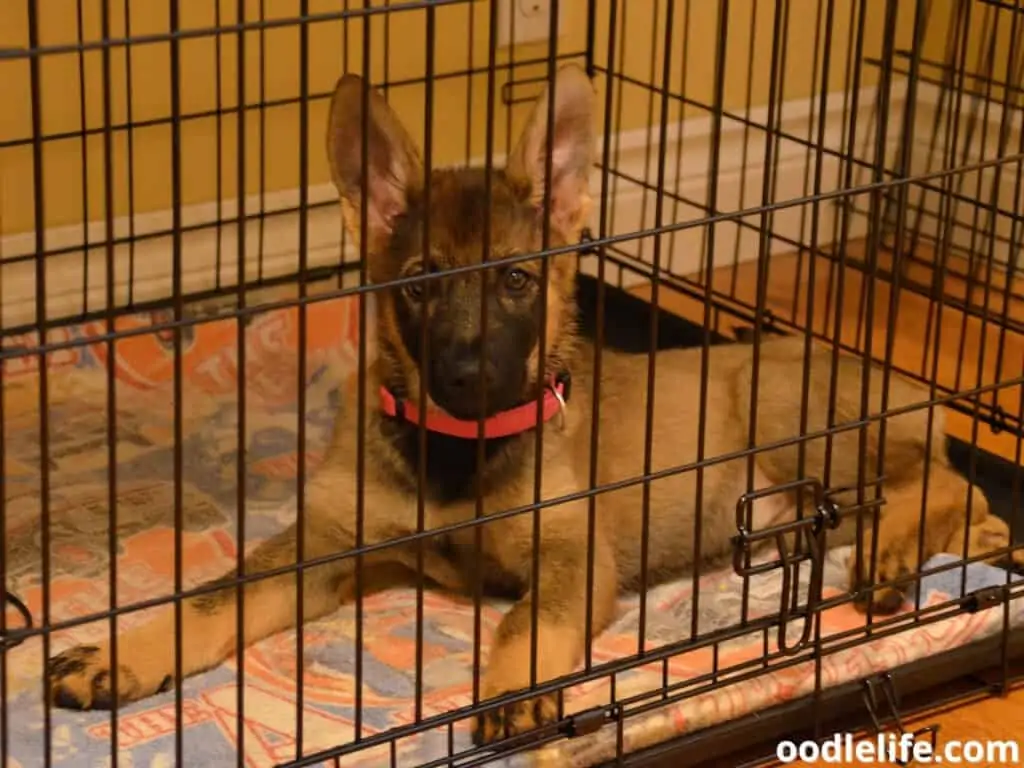
Prepares Your Dog for Overnight Vet Says
We all strive to keep our dogs happy and healthy. However, there may come a time in your dog’s life when she has to stay overnight at the veterinary clinic for tests or surgery. A crate-trained dog is more likely to experience less anxiety because she is used to sleeping in a secure environment.
Another benefit to crate training in a medical situation is that it helps recovery. In fact, the vet may suggest crate rest after surgery because a crate will limit anxiety, encourage a speedy recovery, and reduce the risk of stitches being disturbed.

Crate Training Helps With Good Manners
A crate makes a secure place for your overstimulated dog to calm down and reduce anxiety in new situations. The same goes for helping your dog receive company in your home.
With a crate on hand, you can keep your dog from:
- Jumping on your guests
- Running out the door when guests come in
- Stress peeing
- Ignoring commands while greeting guests
We want our pets to have good manners when we have company in our homes. Crating your dog will keep him calm enough to greet guests properly and not jump on anyone.

Avoids Fights Between Dogs
While a crate makes a safe and secure place for your dog to sleep on vacation with you, it also provides safety when he can’t travel along.
I often leave my dog with my parents who also have a pooch. Generally, they get along, and we never worry about a fight breaking out. However, there is no telling what might provoke a scuffle when no one is there to intervene.
My pooch is a much smaller breed than hers. If they did have a showdown, he would surely lose. So, I always bring my crate when he stays with Grandma.
We can all sleep peacefully knowing they are separated safely for the night.

Creates Car Safety
It goes without saying that car safety is a recurring concern for dog owners. After all, a nervous dog circling the seat can easily tangle himself in leashes and seat belt attachments. Even without the potential dangers to your canine, you could be in hot water with the law.
Some states may fine you for letting your dog roam free where he could jump into your lap while you’re driving.
With all that in mind, a crate can keep your pooch secure and remove the risk of an accident occurring. You’ll even keep your upholstery free from muddy or sandy paws!
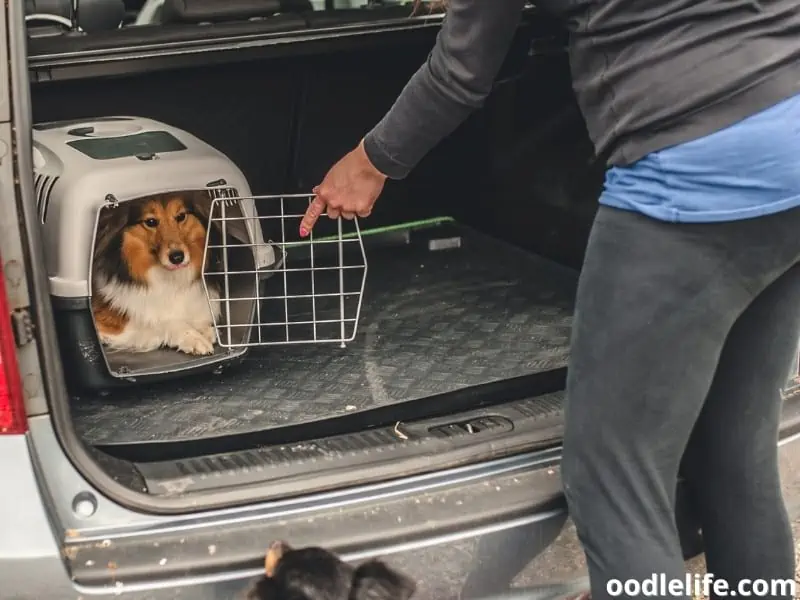
Gets Your Dog Ready for Unavoidable Crate Situations
While there are plenty of benefits to crate training, you might still feel like you can’t bring yourself to confine your dog for any length of time. However, consider that some crate situations are unavoidable.
I mentioned a few situations above such as emergencies, vet visits, and post-surgery crate rest. You may face a situation where crating your dog is unavoidable. An emergency or an overnight stay with the vet is less stressful for dogs who have been crate trained.

What Is the Ideal Dog Crate?
The correct size dog crate made of metal or plastic creates a safe space for your dog. It should be large enough that he can sit, lie down, and turn around comfortably.
A crate that is too small will create those problems that you worry about when considering if you should crate train your dog at all. Your pooch will feel right at home in a properly-sized crate.
However, a crate that is too large will cause problems too. Dogs do not urinate and defecate in their crate unless they absolutely must relieve themselves. If your dog does his business in the crate, it may be too large for him.

Are There Good Alternatives to Crate Training?
Many people understandably wonder if crate training is necessary. Isn’t it cruel to lock your dog up for hours each day? We wouldn’t want to be confined to a crate for any portion of the day, so we assume that our beloved dogs wouldn’t like it either.
Dogs are denning animals. They naturally like to have a small space to themselves where they sleep and can get away from others for relaxation. Crate-trained dogs learn to see their crate as an enjoyable place to be, leading to it becoming a den.

Final Thoughts
We all love our dogs and want to do what is best for them. You can see that the crate training benefits far outweigh the drawbacks for keeping your dog safe, healthy, and happy.
